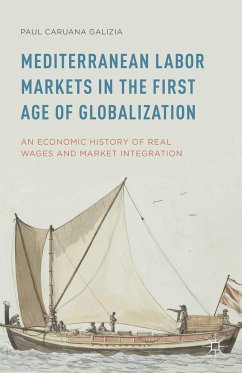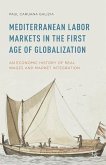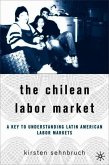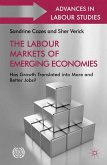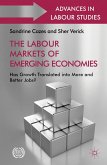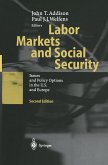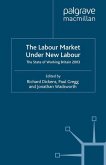Using new data on real wages, Caruana Galizia analyses the extent to which regions around the Mediterranean were part of the same labour market during the nineteenth century.
Scholars have studied the nineteenth century's unprecedented labor flows in global and specific country contexts, but have lacked a comprehensive analysis of the world's old economic core, the Mediterranean. This work provides answers to important questions, such as: If the Mediterranean labor market really was integrated, then why did globalization affect the Western and Eastern Mediterranean so differently? Why did wage inequality rise in the East while it fell in the rest of the labor-abundant periphery? More broadly, was low emigration from Iberia and the East to blame for the Mediterranean's failed integration with the fast-expanding global economy? This ground-breaking research relates these questions to ongoing historical debates on the intensity of intra-Mediterranean integration in goods and labor, to current heated debates on North African emigration to Europe, and to discussions on European economic integration more generally.
Scholars have studied the nineteenth century's unprecedented labor flows in global and specific country contexts, but have lacked a comprehensive analysis of the world's old economic core, the Mediterranean. This work provides answers to important questions, such as: If the Mediterranean labor market really was integrated, then why did globalization affect the Western and Eastern Mediterranean so differently? Why did wage inequality rise in the East while it fell in the rest of the labor-abundant periphery? More broadly, was low emigration from Iberia and the East to blame for the Mediterranean's failed integration with the fast-expanding global economy? This ground-breaking research relates these questions to ongoing historical debates on the intensity of intra-Mediterranean integration in goods and labor, to current heated debates on North African emigration to Europe, and to discussions on European economic integration more generally.
"Mediterranean labor markets in the first age of globalization by Paul Caruana Galizia provides a concise contribution, yet with a wealth of valuable new empirical evidence, on the movements of Mediterranean people within their own region and beyond during the nineteenth century. It is intended for a broad audience of (economic) historians, economists, and, given the current size of migration flows within the Mediterranean area, well-informed policy-makers as well." (Carlo Ciccarelli, The Economic History Review, Vol. 69 (1), 2016)
"Mediterranean Labor Markets in the First Age of Globalization provides a worthwhile contribution to our understanding of the migration patterns of Mediterranean workers, highlighting both the causes and the consequences that such labor movements had for the region. ... It is a fine source not only for scholarsworking on the Mediterranean and the Middle East, but also for anyone interested in understanding more about the dynamics of labor markets during the first era of globalization." (Laura Panza, EH Net, eh.net, September, 2015)
"Mediterranean Labor Markets in the First Age of Globalization provides a worthwhile contribution to our understanding of the migration patterns of Mediterranean workers, highlighting both the causes and the consequences that such labor movements had for the region. ... It is a fine source not only for scholarsworking on the Mediterranean and the Middle East, but also for anyone interested in understanding more about the dynamics of labor markets during the first era of globalization." (Laura Panza, EH Net, eh.net, September, 2015)

